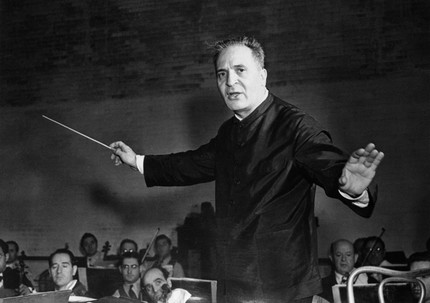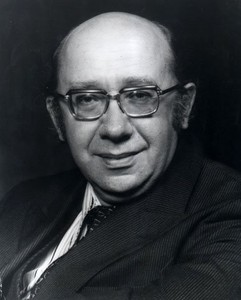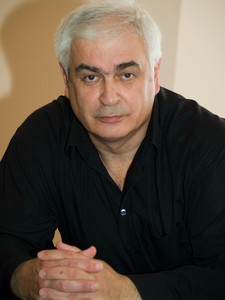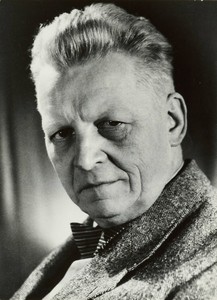
Bruno Walter |
Bruno Walter

The work of Bruno Walter is one of the brightest pages in the history of musical performance. For almost seven decades, he stood at the conductor’s stand in the largest opera houses and concert halls around the world, and his fame did not fade until the end of his days. Bruno Walter is one of the most remarkable representatives of the galaxy of German conductors who came to the fore at the beginning of our century. He was born in Berlin, in a simple family, and showed early abilities that made him see a future artist in him. While studying at the conservatory, he simultaneously mastered two specialties – pianistic and composing. However, as is often the case, he chose the third path as a result, eventually becoming a conductor. This was facilitated by his passion for symphony concerts, in which he happened to hear performances by Hans Bülow, one of the outstanding conductors and pianists of the last century.
When Walter was seventeen years old, he had already graduated from the conservatory and took his first official post as pianist-accompanist at the Cologne Opera House, and a year later he made his conducting debut here. Soon Walter moved to Hamburg, where he began working under the guidance of Gustav Mahler, who had a huge influence on the young artist. In essence, Mahler was the creator of a whole school of conductors, in which Walter rightfully belongs to one of the first places. Two years spent in Hamburg, the young musician mastered the secrets of professional skill; he expanded his repertoire and gradually became a prominent figure on the musical horizon. Then for several years he conducted in the theaters of Bratislava, Riga, Berlin, Vienna (1901-1911). Here fate again brought him together with Mahler.
In 1913-1922, Walter was the “generalmusic director” in Munich, directed the Mozart and Wagner festivals, in 1925 he headed the Berlin State Opera, and four years later, the Leipzig Gewandhaus. These were the years of the flourishing of the conductor’s concert activity, which won all-European recognition. During that period, he repeatedly visited our country, where his tours were held with constant success. In Russia, and then in the Soviet Union, Walter had a lot of friends among musicians. It is noteworthy that he was the first performer abroad of Dmitri Shostakovich’s First Symphony. At the same time, the artist participates in the Salzburg festivals and annually conducts at Covent Garden.
By the beginning of the thirties, Bruno Walter was already at the top of his career. But with the advent of Hitlerism, the famous conductor was forced to flee Germany, first to Vienna (1936), then to France (1938) and, finally, to the USA. Here he conducted at the Metropolitan Opera, performed with the best orchestras. Only after the war did the concert and theater halls of Europe see Walter again. His art during this time has not lost its strength. As in his younger years, he delighted listeners with the breadth of his concepts, and courageous strength, and ardor of temperament. So he remained in the memory of all who heard the conductor.
The last concerts of Walter took place in Vienna, shortly before the death of the artist. Under his direction, Schubert’s Unfinished Symphony and Mahler’s Fourth were performed.
Bruno Walter’s repertoire was very large. The central place in it was occupied by the works of German and Austrian classical composers. As a matter of fact, it can be said with good reason that Walter’s programs reflected the entire history of German symphony – from Mozart and Beethoven to Bruckner and Mahler. And it was here, as well as in operas, that the conductor’s talent unfolded with the greatest force. But at the same time, both small plays and works by contemporary authors were subject to him. From any real music, he knew how to carve the fire of life and true beauty.
A significant part of Bruno Walter’s repertoire has been preserved on records. Many of them not only convey to us the unfading power of his art, but also allow the listener to penetrate into his creative laboratory. The latter refers to the recordings of Bruno Walter’s rehearsals, listening to which you involuntarily recreate in your mind the noble and majestic appearance of this outstanding master.
L. Grigoriev, J. Platek, 1969





